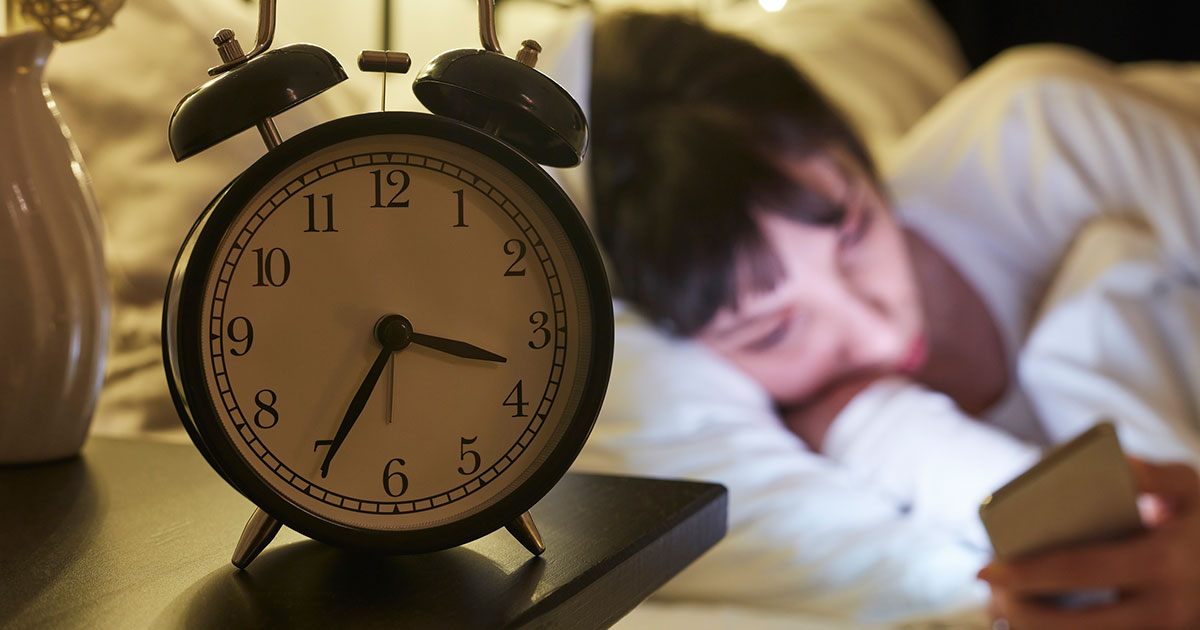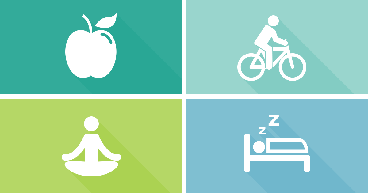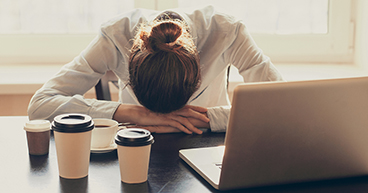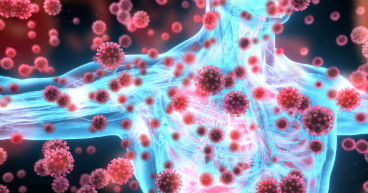
Can’t sleep? You’re not alone. Millions of Americans have trouble sleeping, according to a Consumer Reports survey. Sleep issues are even more common in people who have been diagnosed with cancer. Just a diagnosis may result in stressful, restless nights. There are appointments to me made, bills to pay and a future to ponder. Cancer and treatment side effects may also cause pain or other conditions that may make it difficult to get a good night’s rest. For some, getting restful sleep may have become more difficult during the COVID-19 pandemic. Stress, depression and the disruption of normal schedules may contribute to sleep difficulties. Making matters worse, the nighttime restlessness may often spin into a vicious cycle: You can’t sleep because of pain, stress or depression, and those conditions may become worse because of sleeplessness and fatigue.
“Sleep disorders are very common among cancer survivors,” says Anthony Perre, MD, Vice Chief of Staff at Cancer Treatment Center of America® (CTCA), Philadelphia. “In fact, statistics indicate that upwards of 75 percent of cancer patients experience some level of sleep trouble.” After decades of research into the need for sleep and the nature of sleep disorders, scientists and doctors know more than ever about how sleep affects us and what we may do to sleep better.
Why sleep matters
A good night’s sleep not only feels good, it has significant health benefits, especially for those battling diseases like cancer. Sleep allows the body to relax and recover from the day’s activities. Lack of sleep may depress the immune system and hamper recovery from illness or injury. Trouble sleeping, especially when it’s chronic, may also alter the balance of cortisol and melatonin, two hormones that may influence the behavior of cells.
Cortisol helps regulate immune system activity, including the release of natural killer cells that help the body battle cancer. Melatonin is produced by the brain during sleep and may have antioxidant properties thought to help prevent damage to cells. Adequate sleep may help maintain optimal melatonin levels, while a lack of sleep results in the body producing too little melatonin.
“There are several reasons why inadequate sleep may impact overall health, reduce overall immune function and even increase mortality,” Dr. Perre says. “Poor sleep may have an impact not only on cancer but on mental health, heart disease, obesity risk and diabetes control. Theoretically, melatonin suppression that may be at the root of this increased risk.”
COVID-19 and sleep issues
According to University of Chicago Medicine, there are several reasons why the COVID-19 outbreak may contribute to sleep issues, including:
Blue light: We may be spending more time watching TV or looking at computers and phones during lockdown to get the latest news and keep in touch with family and friends. Blue light from these screens may contribute to insomnia.
Depression and stress: The COVID-19 outbreak as caused financial hardship for millions of Americans. Information overload may also contribute to stress. These factors may make it more difficult to relax.
Disrupted routines: Staying at home may have thrown you off your daily schedules. You may also be exercising less and have become more sedentary while locked down.
“There are many factors that contribute to a person's inability to get restful sleep,” Dr. Perre says. “For example, difficulty with alcohol/substance abuse, depression, pain, hot flashes, medications and obesity may have an impact on the quality and quantity of a person's sleep.”
Why cancer patients have sleep problems
Think of the toll that a cancer diagnosis alone can take, and it’s no wonder that cancer patients may struggle with sleep. Uncertainty and fear about the future, along with confronting the big decisions about treatment, create stress that can hamper sleep. The side effects of the cancer itself or treatment, including certain medications, also may contribute to sleep problems. Insomnia is the most common, with up to 80 percent of cancer patients having difficulty falling and/or staying asleep. Cancer patients are twice as likely to experience insomnia as people without cancer. Sleep apnea, a condition that occurs when you regularly stop breathing for at least 10 seconds while sleeping, is more common among cancer patients. Almost 30 percent of patients reporting cancer-related fatigue were diagnosed with sleep apnea. And a high percentage of head and neck cancer patients suffer from sleep apnea.
For cancer patients, getting a good night sleep isn’t just about feeling better in the morning. Studies show a lack of sleep may promote tumor growth and contribute to poor outcomes for patients undergoing treatment. “People with severe sleep-disordered breathing died of cancer at a rate 4.8 times higher than people with no sleep breathing problems,” Dr. Perre says.
How to sleep well
There are several bedtime strategies that may help improve your sleep at night. Give these tips a try:
Develop a routine. Get up and go to bed the same time every day. Develop bedtime rituals, such as listening to relaxing music, reading, having a cup of caffeine-free tea and doing relaxation exercises.
Reduce distractions. Use earplugs to reduce noise. Use a mask or room-darkening curtains to reduce light.
Get comfortable. Is your bedding comfortable? If you’re constantly hot or cold or adjusting blankets and pillows, maybe it’s time to for a change.
Don't take naps. Save the sleep for bedtime.
Use your bed for sleep and intimacy. Perform all other activities elsewhere. Don’t put a TV in the bedroom.
Put down the phone. So-called blue light emitted by phones and tablets are thought to delay melatonin production and disrupt sleep patterns.
Cut down on caffeine. Don’t have any coffee or caffeinated beverages after noon.
Quit smoking. Nicotine is a stimulant. Smoking may also increase snoring and sleep apnea.
Watch the alcohol. A couple of drinks may help you fall asleep. But when the alcohol wears off, it may make it hard to stay asleep.
Get outside. Getting some sunshine during the day may make it easier to fall asleep at night. Be sure to wear a face covering and practice social distancing if others are around.
Get moving. A run, brisk walk or a good workout early in the day may help you sleep better. But don’t exercise within four hours of bedtime.
Watch what you eat. A light, high-protein snack before bed is fine. But avoid going to bed too soon after a big meal.
Still can’t sleep? If you can't fall asleep within 20 minutes, get up and do something until you feel sleepy.



